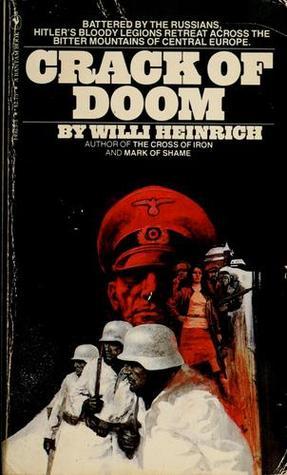
Kaputt
Book Description
War rages, and humanity hangs by a thread. "Kaputt" plunges into the heart of chaos, where the ice-cold brutality of conflict meets the raw, emotional tales of soldiers and survivors. As Malaparte traverses ravaged landscapes and shattered lives, he unveils a haunting tableau of despair, beauty, and resilience. Each vivid encounter exposes the fragility of existence in a world turned upside down, as hope flickers amidst the darkness. Will the spirit of humanity endure, or will it be lost forever in the ruins of war?
Quick Book Summary
"Kaputt" by Curzio Malaparte is a harrowing and poetic exploration of World War II’s brutality as witnessed through the author’s eyes. Blurring the lines between journalism, memoir, and fiction, the novel presents a sequence of intensely vivid episodes set across devastated European landscapes. Malaparte, serving as an Italian war correspondent, encounters soldiers, officers, civilians, and aristocrats, weaving together their stories into an unforgettable tapestry of suffering, absurdity, and fleeting humanity. Amidst grotesque scenes of destruction and atrocity, the narrative uncovers strange beauty and moments of resilience, painting war not just as a political conflict but as a spiritual collapse. Ultimately, "Kaputt" confronts the reader with the question of whether humanity can survive such relentless violence and moral decay—or whether it, too, is "kaput."
Summary of Key Ideas
Table of Contents
The Collapse of Civilization and Moral Order
Malaparte’s "Kaputt" opens onto the eastern front of World War II, a landscape ravaged by the Grim Reaper’s touch. Serving as a liaison and journalist, the narrator traverses war-torn nations—Poland, the Soviet Union, Finland, Romania—each offering their own unique horrors. The sense of civilization crumbling is carefully interwoven through descriptions of shattered cities, desolate fields, and destroyed communities. Malaparte captures not just the physical devastation, but also the corrosion of moral and social order, where once-solid codes of conduct dissolve beneath war’s inexorable force.
The Banality and Absurdity of War
Amid the spiraling collapse, Malaparte dwells on the absurd and grotesque aspects of conflict. Soldiers and generals conduct themselves with a jarring mixture of brutality and nonchalance, as if violence has become mundane. Vivid tableaux—like fields filled with frozen horses or glittering pike heads—lend a surreal quality to events. Malaparte masterfully exposes war’s rituals and pageantry as illogical, detached from reason, and often disturbingly comical. Through this lens, the devastation becomes a theater in which humanity’s darkest instincts play out, often to absurd effect.
Encounters with Suffering and Beauty
Despite ever-present brutality, the narrative finds spaces where beauty and empathy surface. Malaparte’s encounters with local people—Jews in ghettos, Romanian aristocrats, Russian peasants—reveal not only suffering but also small acts of kindness, dignity, and even humor. Nature, too, is not immune: Malaparte lingers over the startling beauty of icy landscapes, sunsets, and animal life amidst carnage. These moments suggest that even in chaos, life persists and fragile hope can be glimpsed, however fleetingly.
Identity and Survival Amidst Ruin
The question of identity, both personal and collective, is a constant undercurrent. Malaparte moves between multiple roles—Italian, journalist, cynic, and sometimes unwilling participant in atrocity. Survival often necessitates moral compromise, leaving wounds both visible and unseen. War blurs boundaries: between victim and perpetrator, observer and participant, truth and invention. This ambiguity extends to the narrator’s own storytelling; the distinction between fact and fiction becomes as uncertain as the shifting battle lines.
The Ambiguity of Witnessing and Storytelling
Ultimately, "Kaputt" is not just a report on a devastated Europe, but a meditation on the challenge of bearing witness. Through his kaleidoscopic lens, Malaparte asks whether it is possible to truly convey the scale of human suffering and moral ambiguity that war produces. The narrative’s haunting imagery and poetic insights refuse to offer closure, instead leaving the reader to ponder whether anything remains unbroken in the wake of such sorrow—or whether the very spirit of humanity is, like the continent, "kaputt."
Download This Summary
Get a free PDF of this summary instantly — no email required.





